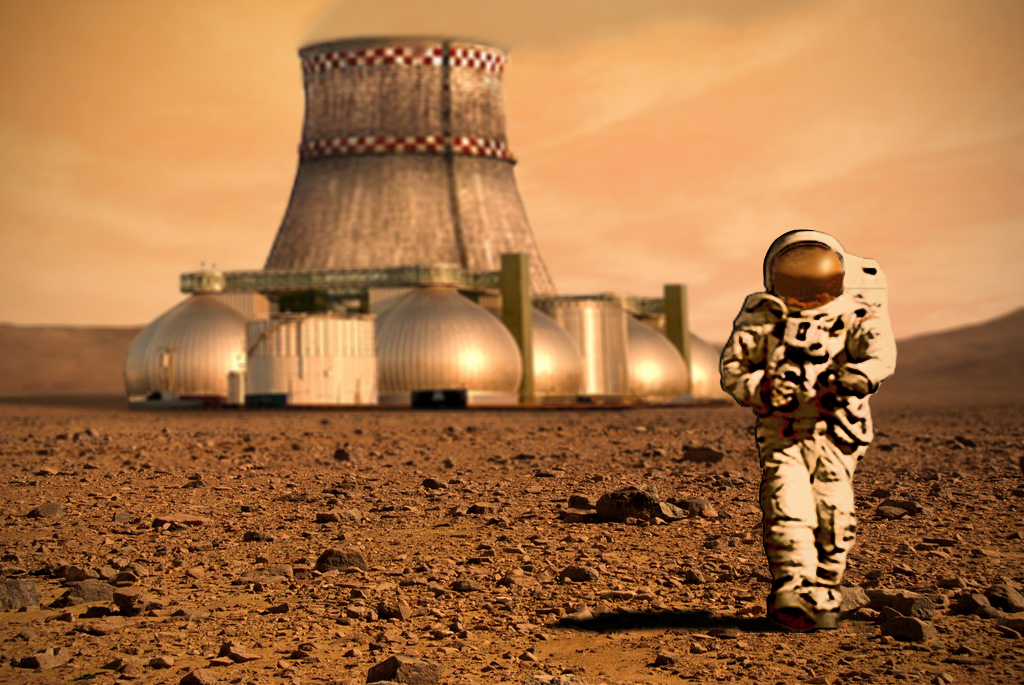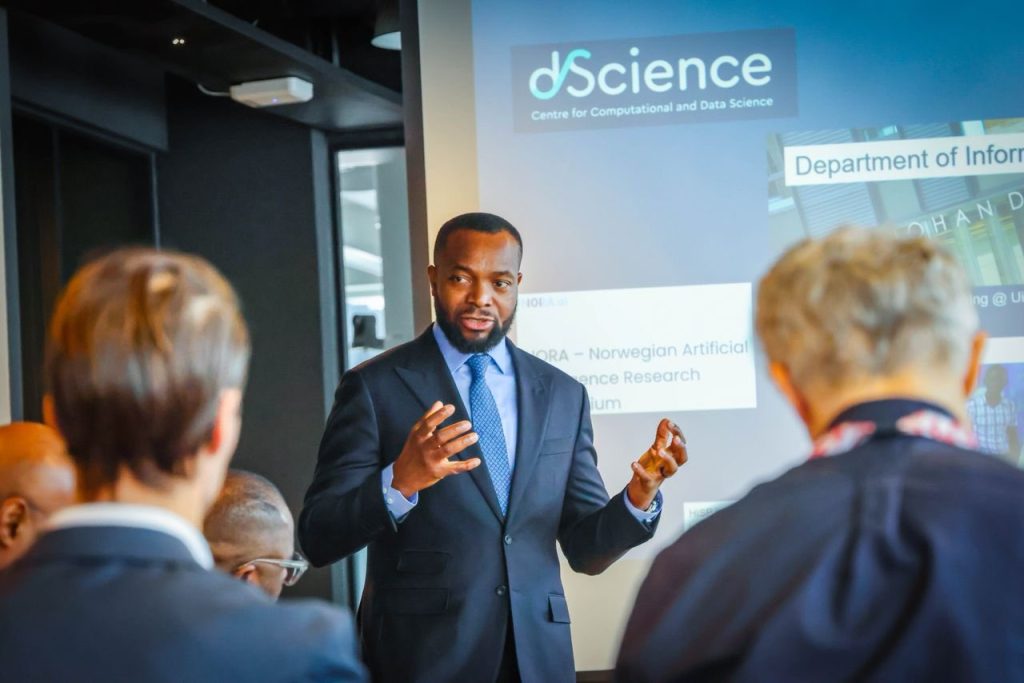The Mars One mission aims to establish a colony on Mars. In February, the news that made the headlines everywhere in the world was that of the ‘longlist’ of 100 hopefuls (if we can call them that) who are like to launch out of earth, on a rocket headed for Mars colonization, and — wait for it — they don’t plan to come back. No need to be so dramatic though, because you already knew that.
What you probably didn’t know was that, out of the 100 finalists announced in February – 24 of which will make the final cohort that will launch to Mars – is a Nigerian Web Architect, Ighodalo Eromosele. TechCabal caught up with Ighodalo, and he tells us (if I may creatively paraphrase him) that, journeying to mars in 10 years would be just as safe as stepping out of your home everyday. Find out more about the Nigerian who would go to mars.
TC: Too many have asked you this already, but really, why are you going to Mars?
IE: I consider myself an adventurer. Human settlement on the red planet is so enthralling, I would like to be a part of this audacious baby step.
We live on a very small planet in the vast universe with billions of planets. However grand the idea of Mars colonization is in our time, it sure is baby steps when considering human exploration of the entire universe.
Also, understanding that every process I will go through, from application, through to selection, training, take off, landing and living on the red planet, would be instances used throughout all humanity for study is as exciting and fulfilling as it gets.
Do you really think you stand a chance in the final 24? How so?
I do actually, as does every other #Mars100 candidate. I believe every one of us (#Mars100) will work hard towards being selected as part of the final 24 candidates. The process of selection is a carefully conducted process, carried out by specialists in the field with many years of experience, I believe I will meet their expectations.
Tell us about your background

I graduated with a bachelor’s degree in Electrical Electronics Engineering from Madonna University in Nigeria, and a Masters degree in Computers and Network security from Middlesex University in London.
I am of humble beginnings. I have four siblings. My parents understood the need for a good education, and as thus, gave us as best an education as they could afford at the time.
I grew up watching science documentaries relating to the cosmos and animal behavior, and thus, developed a keen interest in space science and technology, medical science, exploration, future technology, to mention a few. Realizing the limitless possibilities available to humanity, I have always wanted to explore beyond the shores of our planet, and make a significant mark in my day.
I was about the age of nine, when I saw an auto documentary that showcased really nice cars and bikes, and the thought that came to me at the time, was, “it sure would be nice if I could take a picture of this beautiful looking motorbike, and somehow recreate it without having to go to the store to purchase it”. Today’s translation of that childhood dream would be a 3D printer in action.
It just goes to show that many of us have innovative ideas, but are without the enabling environment to see these ideas come to fruition. Mars One is a forward thinking initiative, which I am glad to be given the opportunity to be amongst.
Has that prepared you at all for this possible adventure that is Mars colonization?
To be frank, Gbenga, I don’t think anyone is fully prepared for the colonization of Mars, yet, and that is why the selected astronauts will go through an eight-year training program. My background has not totally prepared me, but has certainly set me on the course. I have an open and focused mind, and I believe everything is possible.
What are your fears? Going into this knowing it’s a one way ticket to possible death?
I certainly will miss my family the most, as they have been the closest to my past.
There are lots of things to be scared of, ranging from breaking of earth’s gravity to entering into orbit, radiation poisoning etc but we would have 8 – 10 years in training and preparation for the mission, and all of the above mentioned would have been thoroughly dealt with before any human is allowed to set off. Then again Gbenga, isn’t every day you wake up and take that foot step outside, filled with numerous challenges?
This MIT report says the longest any human can stay up on Mars with the latest technology is 68 days. Are you hoping perhaps these guys might be wrong?
This is the case : The MIT report has it that if no local resources are used on mars, and because the astronauts will over produce oxygen due to the plants in the greenhouse module, there will be the need to vent out the excess air so as to eliminate the risk of fire. The problem is, you can’t differentiate between oxygen and nitrogen, and then when nitrogen runs out due to expulsion on day 60 or thereabout according to the MIT report simulation, you will loose the partial pressure in the oxygen tank. At low partial pressure, oxygen cannot diffuse through the human lungs, thus suffocation.

Now this is where the problem with the report is. It is without thorough scrutiny. What the MIT students did was to look at the Mars One website without speaking to Bas Lansdorp or any of the Mars One team members or even with Paragon (the space development company contracted by Mars One to build the life support system), and then came up with assumptions based on information from the website. Understand that Paragon has been developing life support systems for years as you will find on the International Space Station (ISS). The fact that the MIT students don’t know how to solve the problem does not mean that Paragon has not already solved the problem.
All these said, Mars One certainly encourages criticism, as it would be a form of evaluation.
What do you think an ecosystem like ours (Africa) stand to gain from space exploration?
Quite a lot of industries stand to benefit from space exploration. Consider the renewable energy sector, solar panel and battery producers would be spurred towards developing thinner and lightweight solar panels, longer lasting batteries which I would say is a good move towards green earth. The field of agriculture could benefit from the knowledge gained from crop cultivation in outer space or on mars. The recycling industry also would see a high profile boost as there would be a necessity to recycle everything on mars.
The trip is actually another 10 years away, how are you preparing?
Well I am not doing anything particularly different. I exercise regularly, eat healthy, I try to maintain a healthy social life and keep myself abreast of advancements in the science community. If selected, I would go through 8 – 10 years of technical, personal and group training in the fields of Engineering, Medicine, Mars Geology, Exobiology (alien life biology) e.t.c towards preparation for the launch.
Tell us. How are your friends taking this? Your parents too.
As you know, I am from Nigeria, in Africa where ventures of this magnitude are more than often, considered “the white man’s thing”. However, I have gotten encouraging comments from friends and family, but they always stress their concern for the safety and feasibility of the project, and that’s the reason I always try as much as possible to explain to them all measures for safety.
If you made it to Mars, your menu will basically consist of dried fruit and recycled urine. You will naturally miss earth food. What earth food will you miss the most?
Nothing beats that awesome Pepper Rice.
We’re discussing this post on this Radar thread. Join in.
Photo Credits: Ighodalo Eromosele, MarsOne
















